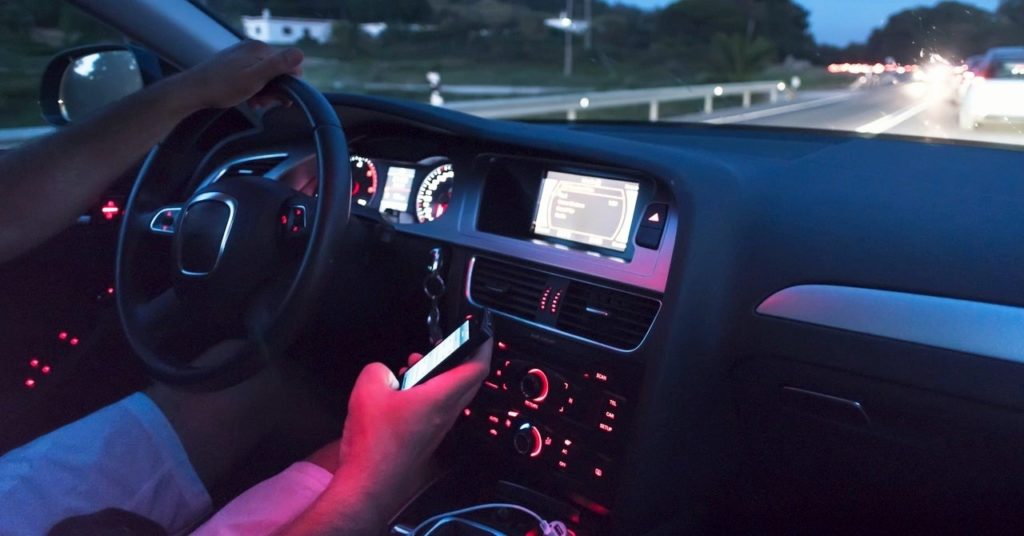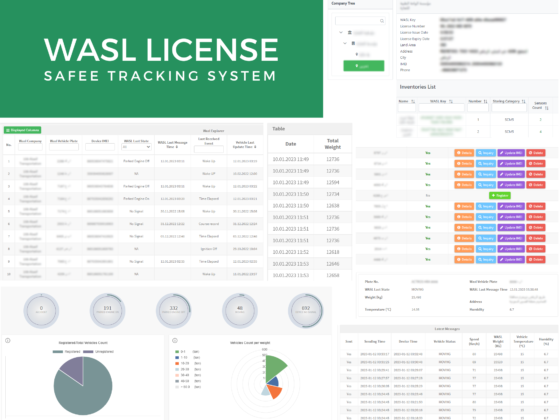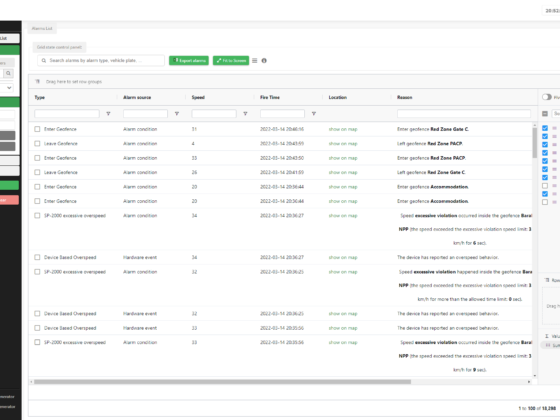Distraction Monitoring & Driver Assistance System of Safee Fleet Management Platform
Imagine the situation when the driver is distracted for 5 seconds at 100km/h speed, which means he is driving eye-blinded for nearly the length of a football field. During this period, a lot of things could go wrong and the most severe situation is when the driver and the vehicle are ended with a devastating collision that could lead to serious fatalities and injuries on the road.
In order to tackle the driver fatigue issue and reduce the probability of traffic accidents. Safee Fleet Management has developed the right technology solution that monitors driver distraction in real-time and increases driver awareness via interactive visual and audible alarming notifications.
Safee meets modern business needs and the increasing interest in drivers’ safety and operations’ security. The system provides fleet managers and business owners with advanced video monitoring capabilities, both inside and outside fleet vehicles and assets.
All driving behavior events and related video footages are recorded and logged in the system, and the fleet manager can access them at any time through our web-based fleet management platform and via the mobile app.
What is driver fatigue?
Driver fatigue, distraction, or drowsiness refers to the driver’s mental or physical disorders due to lack of sleep or due to driving for a long time, which results in performance degradation and loss of control over the vehicle. Multiple statistical studies from several remarkable transportation institutes concluded that driver exhaustion and tiredness are responsible for more than 35% of all accidents that happen on the roads.
Distraction Monitoring System of Safee Platform
Our driver distraction and fatigue detection system is an advanced technology solution that has been developed specifically to reduce accidents caused by driver exhaustion and distraction. The system helps fleet managers and business owners to minimize the risk significantly across their entire fleet to create safer and more reliable driving environments.
The system monitors and analyzes the moves of the vehicle and evaluates the situation to decide whether the vehicle is well controlled or not. The system also gathers and analyzes information from multiple sensors dedicated to monitoring the driver’s status and assessing his driving behavior.
If the artificial-intelligence-based algorithms of our distraction monitoring system detect any severe situation of the driver being exhausted, the system generates instant alerts and delivers necessary visual and audible notifications to make sure the driver is in full control of his vehicle.
Cameras-Based Advanced Driver Assistance System
ADAS is a high-tech solution that gathers and analyzes all the information coming from cameras placed outside the vehicle on the front, back, and sides. The cameras detect and recognize events about the street conditions, other vehicles, pedestrians, road obstacles, traffic signs, and lane lines.

The system generates the necessary alarms in real-time and develops all needed actions which help the driver and his vehicle to build a better understanding of the surrounding environment.
Some of the ADAS triggered responses:
- Automatic emergency braking.
- Lane departure alerts.
- Blind spots alerts.
- Car parking alerts.
System Components In The Vehicle
Basically, the distraction monitoring and driver assistance systems of Safee Fleet Management platform work together as an integrated system composed of three components:
- Driver-facing camera
- Road-facing cameras
- In-cab camera
All three sections of the system are supported by auxiliary sensors and connected to the main processing unit that detects and analyzes all events in real-time and manages the generating of proper alerts.

Driver-Facing Camera
The driver fatigue monitoring system of Safee utilizes a driver-facing camera powered by infrared and laser visions to monitor the driver’s eyes and detect his cognitive and physical situation and recognize even the first tiny signs of distraction, or drowsiness via facial expressions recognition, eye blinks detection, … etc.

The camera can track and detect the driver’s eyes even in dark environments or weak light conditions at night or even when the driver wears sunglasses. The camera also monitors other driver behaviors such as:
- Using the mobile phone while driving
- Seatbelt status
- Excessive speeding
- Smoking
- Abnormal steering wheel movements
Road-Facing Cameras
The road-facing cameras are the essential parts of the ADAS advanced driver assistance system and they are placed outside the vehicle.
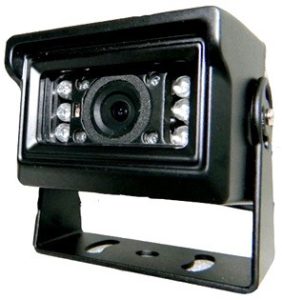

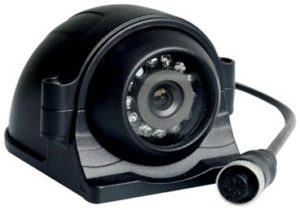
Mainly, they are responsible to detect and analyze events related to the surrounding environment on the road and generating the related alerts, like:
- Collision warning alerts
- Safe distance warning alerts
- Moderate and excessive speeding alerts
- Harsh acceleration
- Sudden stopping
- Harsh cornering
In-Cab Camera
The in-cab camera is part of the V-iVMS video in-vehicle monitoring system and it is for recording visual and audio footage of the events happening in the cab’s interior. The camera is mounted with a wide-angle view of the entire cab. The monitoring of passengers’ and drivers’ behaviors, in addition to the external video recording outside the vehicle, will help definitely to evaluate the reasons and circumstances before accidents for fast and unbiased investigations and to develop better driver coaching programs.

Greater Visibility Brings Greater Operational Benefits
With the incredible monitoring, detection, evaluation, and alarming capabilities that Safee introduces via its distraction monitoring & ADAS system, the platform enables fleet managers and business owners to:
- Show and review the drivers-related data and reports in the same web-based dashboard and easy-to-use mobile app.
- Guarantee more accurate driver accountability.
- Automate driver coaching.
- Improves driver focus and attention.
- Develop more effective driver performance management programs.
- Secure the fleet’s vehicles and assets.
- Achieve greater ROI return on investment.
- Better operating cost savings.
- Reduce accidents and enhance road safety.
- Avoid false insurance claims.
- Comply better with safety policy requirements and regulations.

